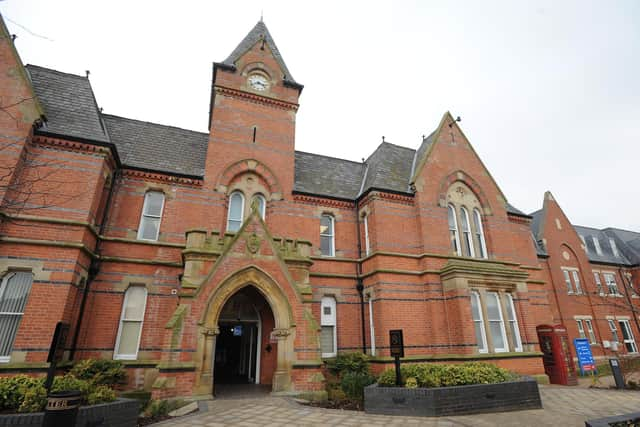Waiting times for routine treatment increase for patients at Wigan's hospitals
and live on Freeview channel 276
The figures come as new research suggests waiting lists across England are unlikely to shrink this year.
NHS England figures show 45,592 patients were waiting for non-urgent elective operations or treatment at Wrightington, Wigan and Leigh Teaching Hospitals NHS Foundation Trust (WWL) at the end of December – up from 45,023 in November and 38,140 in December 2021.
Advertisement
Hide AdAdvertisement
Hide AdOf those, 2,500 (five per cent) had been waiting for longer than a year.


The median waiting time from referral at an NHS trust to treatment at WWL was 15 weeks at the end of December – up from 14 weeks in November.
Nationally, seven million people were waiting to start treatment at the end of December.
A new report by the Institute for Fiscal Studies (IFS) think-tank suggests waiting lists are unlikely to fall significantly in 2023.
Advertisement
Hide AdAdvertisement
Hide AdThe IFS said while "real progress" had been made in eliminating waits of two years or more, it would require a "truly remarkable" increase in treatment rates for waiting lists to drop.
Max Warner, a research economist at the think-tank, said: "To turn things around would require unprecedented double-digit growth in treatment volumes over the next two years."
Separate figures show 1.5 million patients in England were waiting for a key diagnostic test in December – a fall from 1.6 million in November.
At WWL, 7,523 patients were waiting for one of nine standard tests, such as an MRI scan or non-obstetric ultrasound at this time.
Advertisement
Hide AdAdvertisement
Hide AdOf them, 1,287 (17 per cent) had been waiting for at least six weeks.
The Society for Acute Medicine, which represents doctors, called the figures "shocking", but said they would not come as a surprise for those working in frontline care.
Dr Tim Cooksley, president of the organisation, said: “Urgent workforce plans are needed to stop the current haemorrhaging of staff and attract skilled staff who have left back into the profession.
“A sustainable long-term urgent and emergency care plan is also needed to engender a belief in patients and staff that the situation can improve.”
Advertisement
Hide AdAdvertisement
Hide AdOther figures from NHS England show that of 61 patients urgently referred by the NHS who were treated at WWL in December, 46 were receiving cancer treatment within two months of their referral.
A month previously – when 75 patients were referred – 58 were treated within 62 days.
In December 2021, 52 patients were treated within this period, out of 66 that were referred.
NHS England’s national medical director Prof Sir Stephen Powis said the NHS is making "good progress" toward virtually eliminating 18-month waits by April, even despite recent strike action.
Advertisement
Hide AdAdvertisement
Hide AdHe added: “As ever it is vital that people do not put off seeking care and come forward for treatment – using 111 online for non-life-threatening care, as well as local pharmacies or general practice, or dialling 999 in a life-threatening emergency.”
